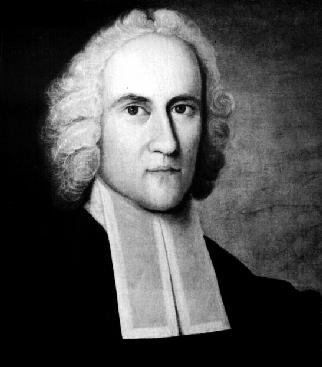
The “Mystery Book” of yesterday generated several responses to which I would like to reply.
First, yes, the author is Jonathan Edwards, but no, the book in question is not Charity and Its Fruits (though I would like to get the Yale edition of that work — Volume 8 — but I am not willing to come up with the $100 to do so, yet). The book is rather his treatise on Religious Affections. I was first made aware of this book and its importance nearly 20 years ago. I probably bought it ten years ago with all good intentions. It may take me another five years to read it, but I will.
One respondent said that after trying to read the book, he stopped, finding it “too long” and “a bit redundant after a few sections”. Yes, that can be the downside of reading Puritan or Puritan-like authors. I’m not deep enough in to pick up on either the length or redundancy. I will no doubt agree once I’m another 100 pages in. As you can imagine, Edwards is treading into a subject that is laced with minefields and ripe with possibilities for misunderstanding. He must hedge his argument with all kinds of qualifications in order to avoid being wrongly understood. That probably feeds his redundancy.
Should reading it cause us to feel awful about ourselves, as this respondent went on to confess? Like him, I don’t need any help doing THAT! I am predisposed to severe self-criticism. I come by it naturally. I understand. But I’m also aware that my heart is cold, my passion lukewarm. I fear abandoning my first love and losing the sense of the simple joy of God’s salvation. Edwards may not be the place to go to have the fires renewed. But I know that Edwards has fueled the fire of men whom I respect, and I’m anxious to mine for myself something of what they mined.
One response says that she (or he? the screen name is both unpronounceable and unknown to me) found the quote in an article by a man arguing in favor of contemporary worship music. Thanks for the reference, though I’m not sure what your take on the article is. I found it quite good. He is responding to an article by Chuck Colson, and he does so respectfully. (My response to Colson, mentally at least, when I read his article, was more like this: “crotchety old man”. Maybe I do need to read Charity and Its Fruits!) His reference to Edwards shows the relevance of Old Books. There really is nothing new under the sun, so it is good to bring the wisdom of some of the church’s greatest thinkers into contemporary controversy.
And finally, to the friend who quoted a scholar saying “Books are to be referenced, not read” I reply, “He is a scholar. I’m not.” That’s not completely true. Just yesterday I pulled several books off my shelves that I had not looked at for years to reference a particular subject. Many books in my library are there simply for that purpose: reference. Others, however, sit there as ripe fruit ready to be picked and enjoyed. The same is true for you as well.
This post is way too long already, but I must say one more thing. As we read, we must resist the temptation to allow contemporary debate to define our reading. I find some who read and study only what is “hot” and do not reserve time to read what might really nourish their soul. The latter should be primary.
